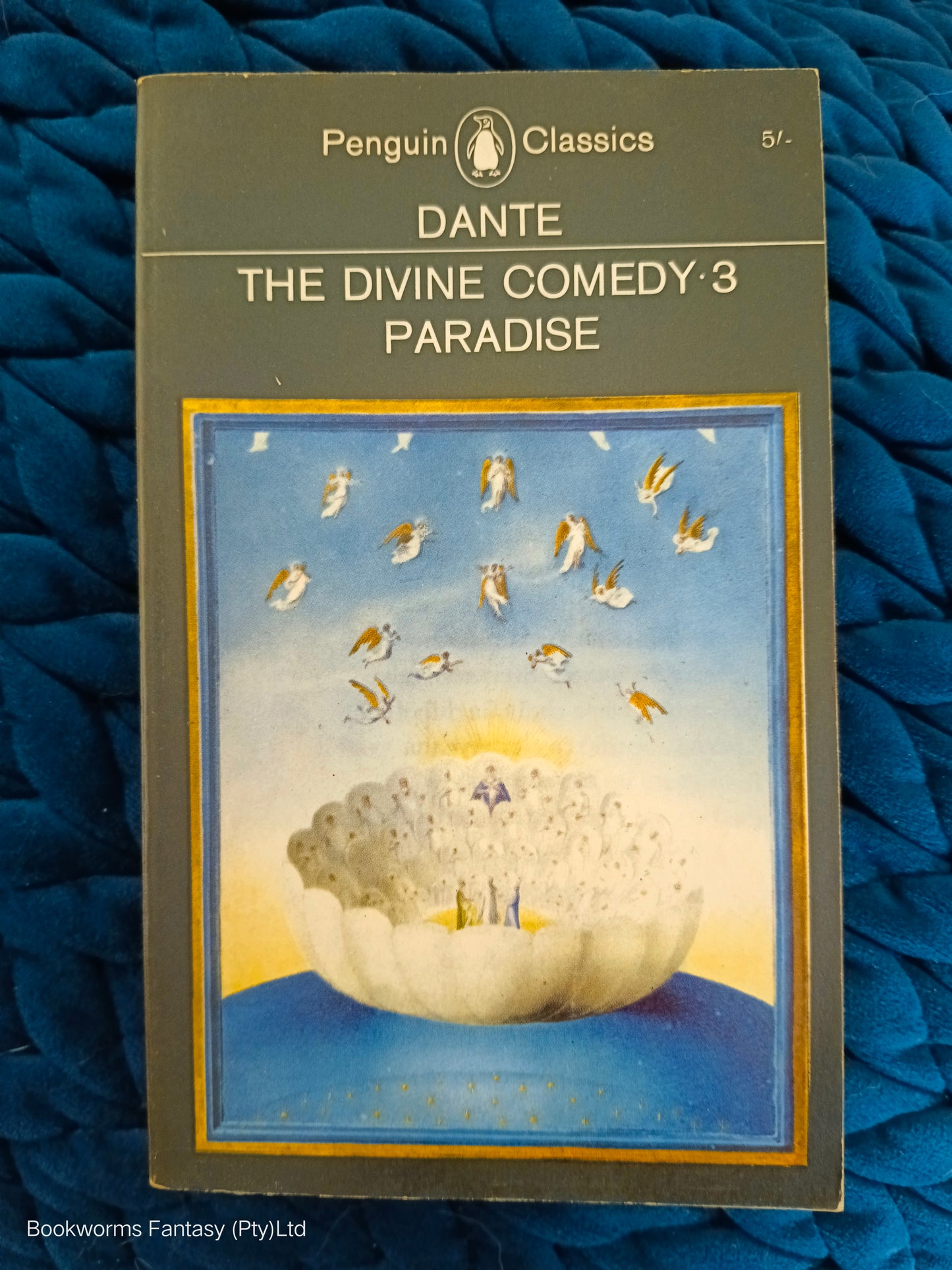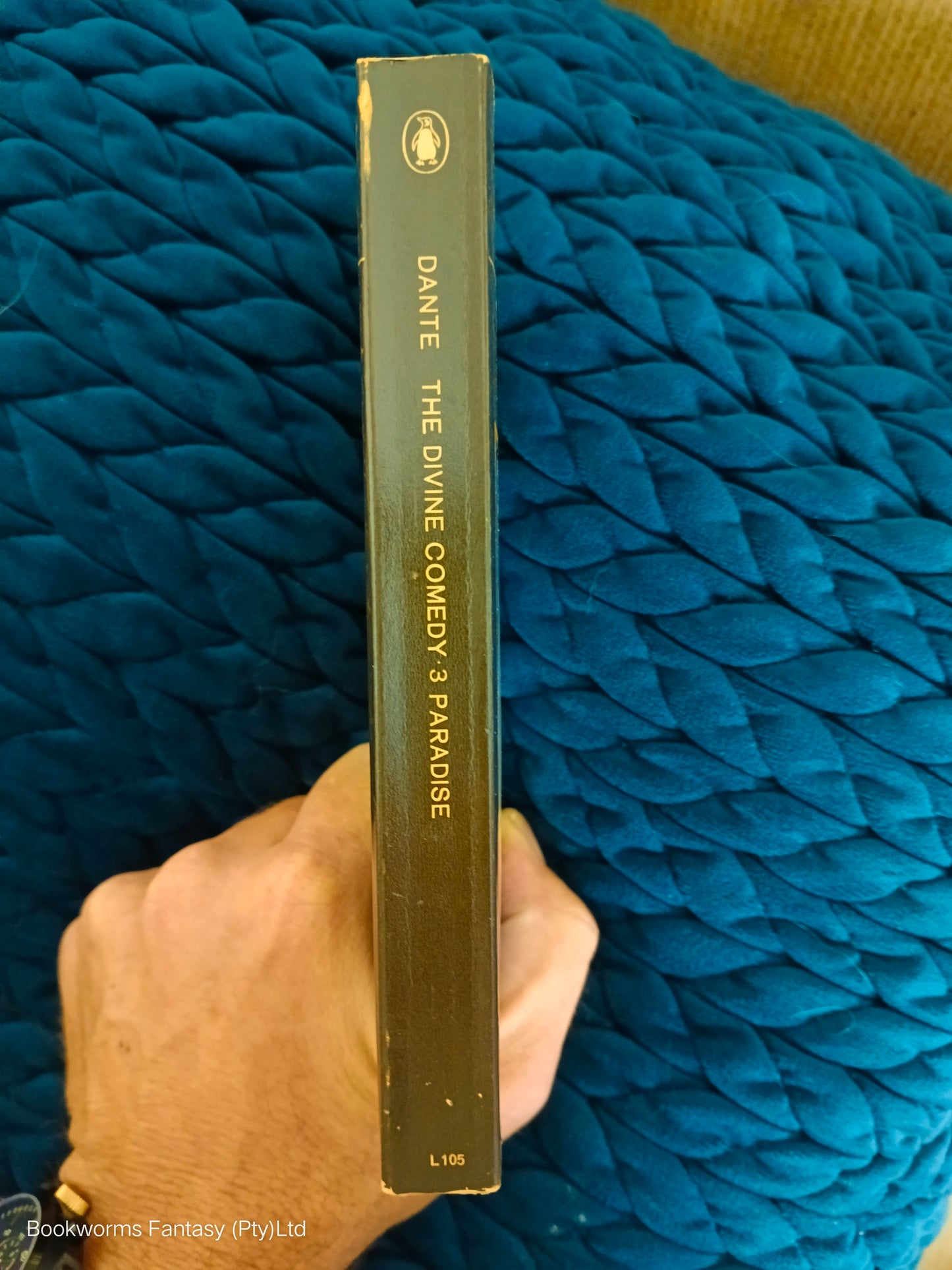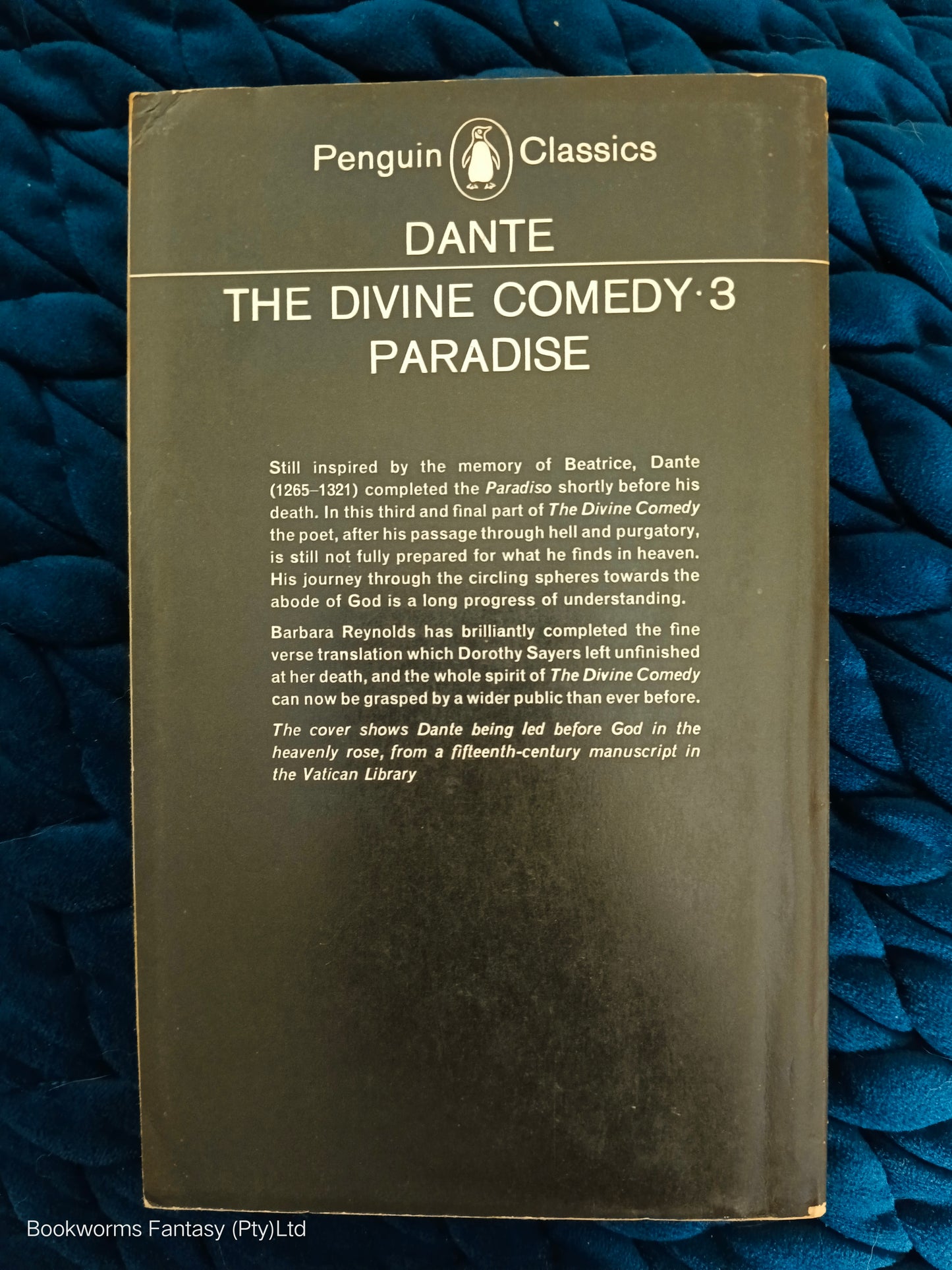1
/
of
3
The Divine Comedy, Vol. 3: Paradise by Dante Alighieri
The Divine Comedy, Vol. 3: Paradise by Dante Alighieri
Regular price
R 45.00
Regular price
Sale price
R 45.00
Unit price
/
per
Couldn't load pickup availability
La Divina Commedia #3
Translated by Dorothy L. Sayers
Penguin Classic Paperback
180 x 110 x 20mm (L x W x T)
This Edition Published: 1966
Condition: Very Good (Has very small/minor signs of wear). There no markings, inscriptions or signatures of any kind, pages are clean and vibrant. Genres
Classics: Poetry / Classics / Religion / Medieval / Philosophy
The final volume in this brilliant translation destined to take its place among the great English versions of The Divine Comedy
Behold, The Divine Comedy, a grand tapestry woven by the Florentine weaver, Dante Alighieri, between the years of our Lord 1308 and 1320. More than a mere poem, it stands as a monumental synthesis, a veritable summa of the medieval cosmos and its understanding of being. Within its verses reside the echoes of scientific inquiry, the clamor of political discourse, the whispers of philosophical contemplation, the pronouncements of morality, and the pronouncements of faith – a veritable encyclopedia of the medieval mind. It is a work of such magnitude that it claims a place among the highest achievements of Italian and indeed, world literature.
Born of the latter half of Dante's earthly sojourn, The Comedy represents the culmination of his artistic and intellectual journey. It is the final, most ripened fruit of his genius, offering the fullest expression of his vision. Here, Dante acts as the last great voice of the medieval age, carrying its literary torch onward.
The very "antiquity" of Hell, particularly this first circle, serves a crucial purpose. It underscores the understanding that the pre-Christian world, while lacking the grace of Christ, is not inherently sinful. These figures, though outside the Christian fold, are not condemned for rejecting a faith they never knew. Their placement in Limbo speaks to a nuanced understanding of virtue and culpability, a subtle point in the grand theological architecture of Dante's vision.
Share






